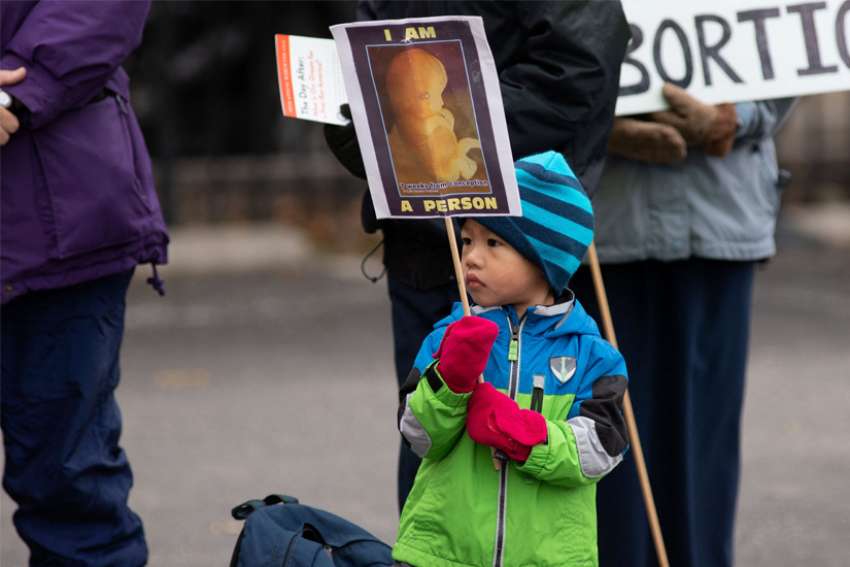But to think the war has been won would be a mistake. Defeating Roe was a major battle but not the war. The road to defeating Roe was long, but defeating abortion will be longer.
“Pro-lifers need to remember, there’s a lot of work to be done,” Olivia Gans Turner, a Catholic and president of the Virginia Society for Human Life, told the National Catholic Register.
Turner and other pro-life advocates are concerned people in the movement do not fully grasp that overturning Roe v. Wade and other case law that upheld the original ruling would not make abortion illegal. Instead, she emphasized that it would simply give states the ability to regulate the practice as they decide.
If the leaked decision written by Justice Samuel Alito is accurate, and most observers believe it is, roughly 26 states will either outright ban abortion or put in severe restrictions almost immediately. Idaho, for example, will ban abortions after six weeks while Mississippi will ban abortions except in the case of rape or to save the life of the mother.
What all this adds up to is that in most every state there will be long, drawn-out battles — with pro-life forces battling in liberal states and pro-abortion groups fighting state-wide bans. In some places those fights will be evenly matched in terms of supporters.
Texas has one of the most restrictive laws on abortion, banning it after six weeks. Once the defeat of Roe is confirmed the state will ban abortion in every case except to save the life of the mother. But it may not remain that way.
Texans were nearly split evenly between supporting and opposing the six-week rule. With a total ban those numbers will likely not change drastically. However, Texas is changing demographically. More people from the north are moving south for good jobs and warm weather. Many are Democrats. The state is also becoming more ethnically and politically diverse.
In 2018, liberal Democratic challenger Beto O’Rourke nearly defeated GOP incumbent Ted Cruz. And now O’Rourke is hoping to be elected governor in the fall.
Indiana will likely ban abortions while neighbouring Illinois will not. Pro-abortion clinics in Illinois are already gearing up for an influx of Indiana women seeking abortion. Note, too, that 43 per cent of Indiana residents support Roe and abortion rights.
To make matters more complicated for the pro-life movement, those who support abortion rights are starting from a position of strength. A CNBC poll found “a combined 60 per cent of Americans say abortion should be either always legal (37 per cent) or legal most of the time (23 per cent) — the highest share believing it should be legal on this question, which dates back to 2003.” Similar polls have found 57 per cent support abortion in most cases.
The Pew Research Center in Washington found that even among the self-described religious, there is a reluctance to overturn Roe. It found:
“A majority of white mainline Protestants (60 per cent ) and Black Protestants (64 per cent) say abortion should be legal in all or most cases. By contrast, 77 per cent of white evangelical Protestants say abortion should be illegal in all or most cases. Among Catholics, more say abortion should be legal (56 per cent) than illegal (42 per cent) in all or most cases.”
For those states that successfully ban abortion there will be a lot of work ahead. In an excellent Wall Street Journal editorial, the paper made clear what will be needed. It called the end of Roe v. Wade a starting point.
“The number of lives saved would be only a fraction of all U.S. abortions seen in recent years, which top 600,000 annually. Abortion clinics would expand their work in many states. Pill-driven abortions would likely continue to rise. Unintended pregnancies may decrease. But at a minimum we should anticipate tens of thousands of children would be born who wouldn’t have been under Roe — possibly many more.
“Many of these children would be welcomed into loving, stable homes — some by their biological parents, others through adoption. But not all. Almost certainly, more children than before would be born into households strained by material poverty. For some, this will include family breakdown, addiction, homelessness and mental illness.
“These children would need help, and America is up to the task. But it would require significant growth in the support offered for vulnerable children and families.”
(Lewis is a regular contributor to The Catholic Register.)


